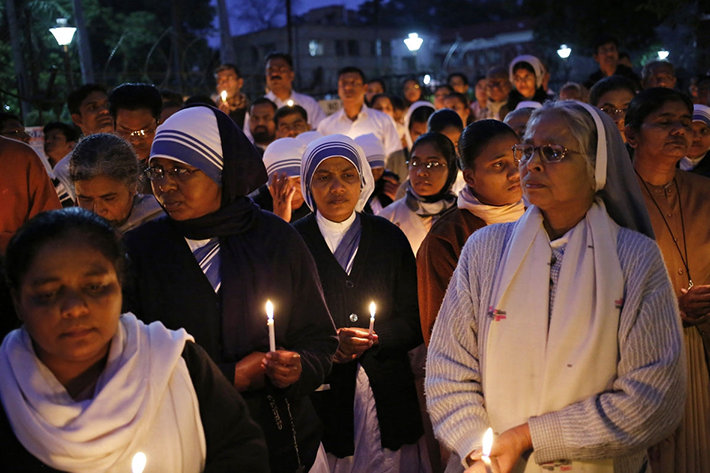A Muslim cross-country runner in Ohio who was disqualified from one of her first varsity races because she wore a hijab is applauding the passage of new state law that prevents schools and their sports regulators from restricting religious apparel unless it poses a legitimate threat to fellow competitors.

Under bipartisan legislation approved by the Ohio Senate in June 2021 and signed into law last month by Governor Mike DeWine, schools and school regulators can no longer require religious exemption waivers in advance for religious apparel nor otherwise restrict such garments.
The religious expression bill was inspired by the plight of Muslim teen Noor Abukaram, who was disqualified from a cross-country race in October 2019 because she was wearing a hijab without a required waiver.
The Muslim athlete’s hopes of seeing her name along with those of her high school teammates in the results for the varsity race were dashed when she learned that she had been disqualified for doing something she had always done: she wore a hijab while running.
“My worst nightmare just came true,” Abukaram said, recalling the varsity race in which her high school team in suburban Toledo qualified for the Ohio regional championships without her.
The Ohio High School Athletic Association (OHSAA) rules at the time prohibited a host of headgear, including caps, unless competitors were informed of religious exemption waivers in advance.
The Muslim athlete’s coach acknowledged that he erred by not obtaining a waiver. But he said he had no reason to think he needed one in the first place, not least because head coverings had not been a concern in previous races.
The legislation that makes it possible for students like Abukaram to compete was sponsored by Ohio Senator Theresa Gavarone who researched the bill after learning of the Muslim athlete’s troubles.
Gavarone, who is Roman Catholic, was reminded of a similar situation that her own son, a hockey and lacrosse player, experienced. He was only permitted to wear a Christian cross as long as it remained tucked under his pads, taped to his chest.
Gavarone said she was furious about what happened to Abukaram. “No student athlete should ever have to choose between… their deeply held religious beliefs and participating in the sport they love.”
Abukaram’s efforts to assert her religious freedom have gained national attention. She was interviewed on CNN and featured in Runners World and Sports Illustrated.
In February 2021, the National Federation of State High School Associations announced that beginning with the 2021-2022 season, religious headwear would be permitted without state association approval in high school soccer.
Now 18 and a freshman at Ohio State University studying fashion design and sports industry, Abukaram is still active in track and field sports. She was encouraged by the bipartisan support for Gavarone’s bill as well as the backing she received from religious groups and that religious freedom turned out to be “something that everyone can agree on.”
From its beginnings, the Church of Scientology has recognized that freedom of religion is a fundamental human right. In a world where conflicts are often traceable to intolerance of others’ religious beliefs and practices, the Church has, for more than 50 years, made the preservation of religious liberty an overriding concern.
The Church publishes this blog to help create a better understanding of the freedom of religion and belief and provide news on religious freedom and issues affecting this freedom around the world.
The Founder of the Scientology religion is L. Ron Hubbard and Mr. David Miscavige is the religion’s ecclesiastical leader.
For more information visit the Scientology website or Scientology Network.


